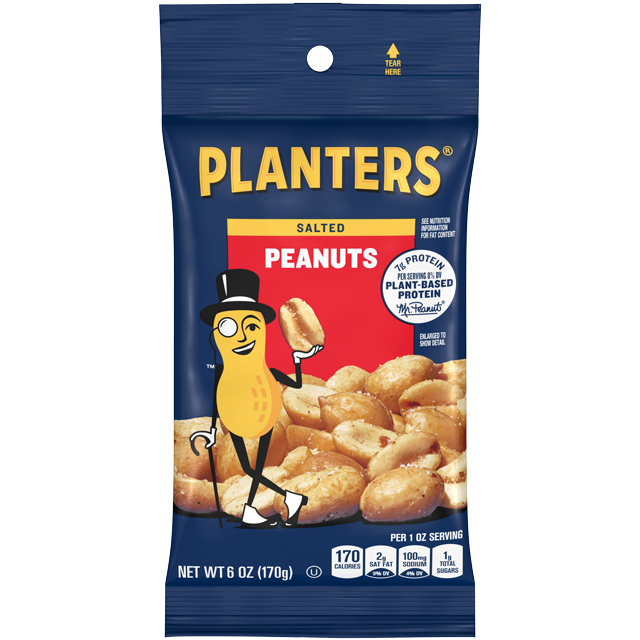Understanding the Difference Between Zero Sugar and Diet: A Practical Guide for 2025

Apply Now

 Its part of generated content. Can i generate another part?
Its part of generated content. Can i generate another part?
Understanding the Key Differences between Zero Sugar and Diet Drinks
Zero sugar and diet drinks have surged in popularity over the years, offering consumers alternatives to traditional sugary beverages. Understanding the differences between zero sugar drinks and diet drinks is essential, particularly as dietary choices continue to affect our overall health in 2025. This guide explores the nutritional value, ingredients, and health implications of both types, helping consumers make informed choices. The differences can often be subtle, yet they carry significant implications for our health, metabolism, and weight management strategies. For example, zero sugar drinks often rely on sugar substitutes to maintain sweetness while providing no calories. In contrast, diet beverages typically use artificial sweeteners, which can have varying health effects. In this article, we delve into the specific characteristics, taste profiles, and marketing strategies behind zero sugar and diet drinks, while also addressing common misconceptions and health risks. By understanding these key distinctions, you’ll be better equipped to navigate the beverage aisle and make the best choices for your dietary preferences and health goals.Exploring the Ingredients: Sugar Substitutes vs. Artificial Sweeteners
Building on the foundational understanding of zero sugar and diet drinks, it’s crucial to examine the ingredients used in these beverages. Zero sugar drinks primarily utilize zero-calorie sweeteners, which can be either natural or artificial. Common examples include erythritol, stevia, and sucralose. These substitutes promise sweetness without the calories associated with sugar, offering a compelling choice for those monitoring their sugar intake. On the other hand, diet drinks frequently rely on artificial sweeteners, which include aspartame and acesulfame potassium. While these sweeteners provide a low-calorie option, they differ from natural sweeteners found in many zero sugar products. Evidence suggests that a blend of these sweeteners can mimic the taste of sugar, especially in beverages marketed towards consumers desiring traditional sweetness without the accompanying energy impact. While the debate over the health effects of zero sugar drinks persists, emerging research indicates potential risks associated with consuming artificial sweeteners in excess. Weight management strategies can particularly benefit from understanding these differences, as the metabolic responses to various sweeteners can vary widely. This naturally leads us to consider the taste differences that consumers might experience when choosing between zero sugar and diet beverages.Taste Comparison: Zero Sugar vs. Diet Drinks
The quest for the perfect taste in beverages often influences consumer preferences. One notable aspect to consider is the flavor profile between zero sugar and diet drinks. Zero sugar drinks frequently utilize a combination of natural sweeteners, providing an experience that many claim is closer to the taste of sugary beverages. In contrast, the artificial sweeteners found in diet drinks can sometimes lead to a more synthetic aftertaste. For many consumers, the decision between zero sugar and diet drinks hinges on taste satisfaction. It’s crucial to explore the community’s perceptions on how sweetness in zero sugar beverages compares to that in diet drinks. Taste testers often report that zero sugar options deliver a more authentic flavor, which can enhance overall drinking satisfaction. Yet, it’s also important to recognize that individual preferences play a significant role. Factors like dietary restrictions or specific health goals can modify these preferences. As health-conscious consumers continue to navigate diverse beverage choices, understanding taste differences remains pivotal. The connection between flavor and consumer preferences leads us to investigate the health implications associated with these beverages.Health Benefits and Risks of Zero Sugar and Diet Drinks
With these taste differences established, it's essential to dissect the health impact of zero sugar and diet drinks comprehensively. Zero sugar drinks touted for their zero-calorie claims often appeal to individuals seeking to lower their sugar intake without sacrificing flavor. Research indicates several health benefits associated with sugar-free diets, including weight reduction and improved overall health markers. However, misconceptions abound when discussing the health implications of diet drinks. While they offer significant reductions in calories and sugar content, artificial sweeteners are not without controversy. Studies suggest that overconsumption may lead to adverse metabolic effects, including increased cravings for sugar and potential challenges in managing weight. Additionally, while many people believe that all sweeteners are created equal, it’s vital to distinguish between natural and artificial options. Natural sweeteners often convey additional health benefits compared to their artificial counterparts. In understanding these distinctions, consumers can align their beverage choices with their health goals more effectively. Health campaigns promoting the benefits of diet drinks often emphasize moderation, encouraging consumers to consider them as part of a larger nutritional strategy. However, keeping track of potential health risks emerges as paramount in choosing the best drinking options.Nutritional Guidelines and Labeling of Zero Sugar Drinks
The way zero sugar and diet drinks are marketed influences public perceptions and consumer choices significantly. Understanding nutritional guidelines for beverages is vital for making informed selections. Ingredients in zero sugar drinks are often emphasized on labels, highlighting their zero-calorie or low-calorie content and natural sugar-free attributes. Consumers need to be wary of understanding food marketing tactics that may obscure or oversimplify the nutritional value of drinks. Insights into reading nutrition labels can dramatically alter how consumers perceive beverages, as many may overlook the implications of added ingredients or the effects of consuming multiple servings. While zero sugar drinks promise minimal calories, consumers should investigate the entire ingredient list. Zero sugar labeling can be misleading if not accompanied by educational outreach, prompting the need for enhanced consumer awareness of low-calorie options available in the market. Following these guidelines enables consumers to make well-informed decisions about diet drinks, steering clear of marketed myths and misconceptions.Consumer Preferences and Trends for 2025
The evolving beverage industry reflects shifting public perception of sugar consumption. Recent research shows that, by 2025, consumer preferences for zero sugar products will likely surpass traditional sugary drinks. As awareness of health issues linked to excessive sugar intake grows, more people are opting for low-calorie or zero sugar options as part of their daily dietary choices. Survey data demonstrate a clear trend: the rise of sugar-free diets and a significant shift toward understanding nutrition labels in grocery aisles. These preferences reveal a proactive approach by health-conscious individuals, focusing on calorie control with diet drinks while balancing quality and taste. Public perceptions about the effects of zero sugar drinks can influence how products are designed and marketed. As brands work to position themselves favorably in an increasingly health-oriented marketplace, understanding consumer dynamics is essential for shaping the future of these beverages. This examination of trends only scratches the surface, turning our attention towards the specific effects of zero sugar on metabolism.Metabolic Reactions to Zero Sugar Drinks
Exploring the metabolism effects of zero sugar drinks is vital in understanding how they influence weight and overall health. The sweeteners utilized in these products trigger diverse metabolic reactions, with some studies indicating a neutral impact on metabolism. However, the long-term effects might vary significantly. Examining the effects of artificial sweeteners, often present in diet drinks, suggests they may provoke insulin responses similar to carbohydrate consumption. The implications of such findings extend beyond just weight control; they can raise questions about dietary composition and how these beverages can affect health outcomes. Reducing sugar intake through zero sugar drinks poses unique challenges for many, compelling consumers to understand energy expenditure and its relationship with sweeteners. As consumers aim to improve their health and lifestyle habits, awareness of these metabolic responses will be integral. With the exploration of metabolism completed, we turn to the practical aspects of incorporating these beverages into a balanced diet.Integrating Zero Sugar and Diet Drinks into Your Nutrition Plan
Finding room for zero sugar and diet drinks within a structured nutrition plan continues to be a subject of interest for many health-conscious consumers. When evaluating sugar intake and calorie reduction strategies, both types can serve as practical components of a balanced beverage approach. Key to success is recognizing the intensity of sweetness in these drinks and understanding their overall role in hydration. Calorie-free beverages can complement a healthy diet by providing flavorful alternatives to sugary drinks while also promoting hydration. Importantly, balancing these choices with other hydration sources like water should remain a priority for optimal health. Practical implementation advice centers around moderation, highlighting the necessity for mindful consumption. Zero sugar snacks can augment meal enjoyment paired with these drinks, allowing individuals to indulge without guilt. Strategies that emphasize moderation may yield the best outcomes, fostering a balanced perspective on how beverages affect weight management and overall well-being.Q&A: Common Questions about Zero Sugar and Diet Drinks
**What are the main differences between zero sugar and diet drinks?** Zero sugar drinks utilize sugar substitutes to maintain flavor without calories, whereas diet drinks often rely on artificial sweeteners that can have various metabolic effects. **Are zero sugar drinks healthier than diet drinks?** This can depend on individual health considerations; however, zero sugar drinks are typically free from artificial sweeteners, which some individuals may wish to avoid. **Can zero sugar and diet drinks contribute to weight loss?** Both types can aid in reducing calorie intake; however, consumers should be mindful of potential cravings they may instigate. **Do zero sugar drinks have any side effects?** While often considered safe, high consumption of some sweeteners may lead to gastrointestinal discomfort or cravings. **How do I choose the best drink options for my health?** Reading labels and considering individual health goals are critical. Prioritizing drinks with natural sweeteners is often recommended for the best outcomes. These insights into zero sugar and diet drinks enable consumers to make informed choices for their health and wellness moving forward into 2025.
 Its part of generated content. Can i generate another part?
Its part of generated content. Can i generate another part?